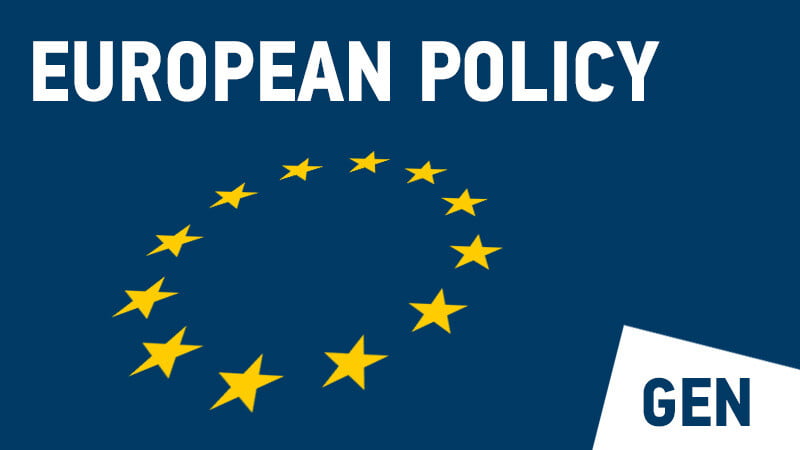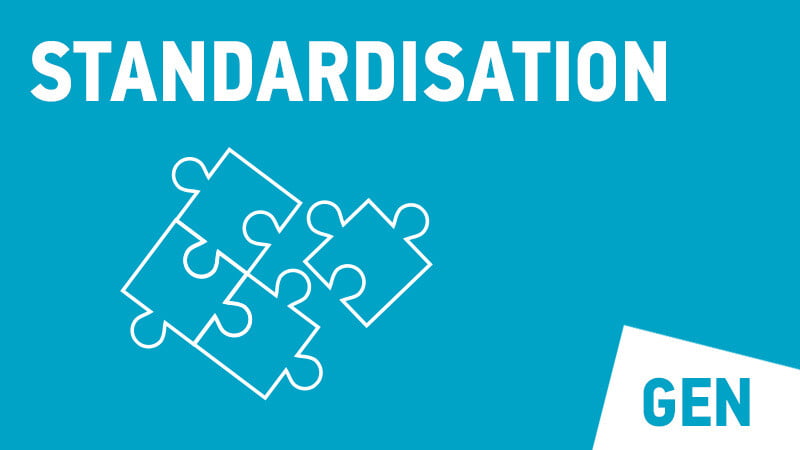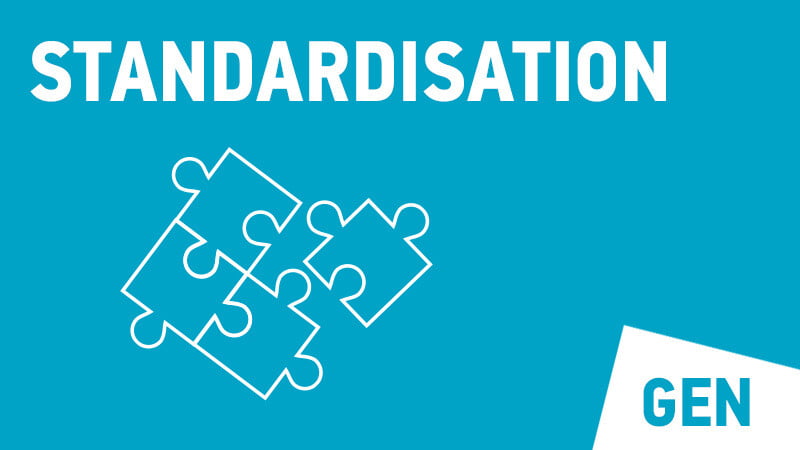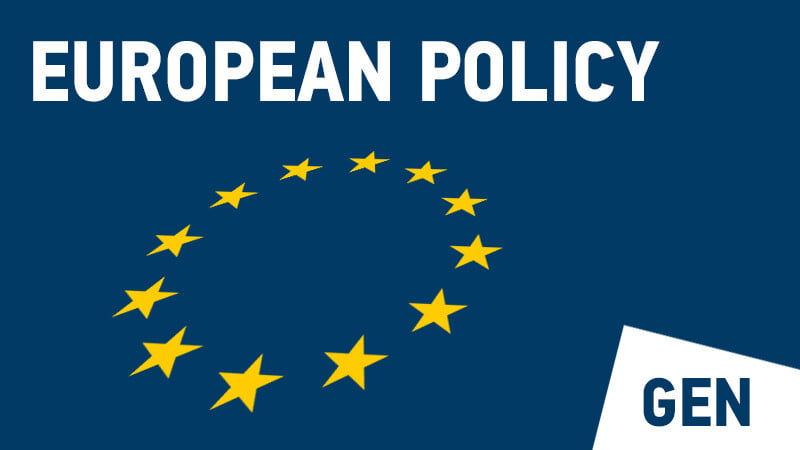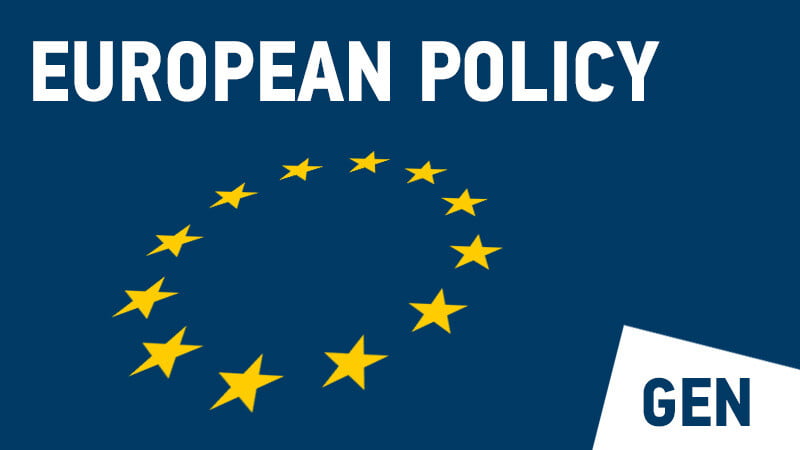GEN – 1434.00. On Monday 28 November 2022, the European Commission will hold the Ecodesign and Energy Labelling Consultation Forum meeting on the review of the regulations on professional refrigeration products (Regulations EU 2015/1095 and 2015/1094).
The meeting will start on Monday 28 November from 10:00 to 17:00 and will be both physical and virtual (online). Together with the invitation to the meeting, the preparatory documents have been circulated.
The most relevant proposed measures are:
Professional refrigerated storage cabinets
- The EPREL data suggests that the current class limits are still ambitious, and the adjustment could focus on progressively eliminating lowest classes (G, F, E) and setting up bands A to D to incentivise improvement
- Proposed revision of the Ecodesign limit takes account of apparent stagnation or even backsliding of the market in energy efficiency terms. Proposed thresholds remove around 7% of the poorest performing models in the first Tier, with a second Tier taking effect in expectation of further market recovery. A more ambitious third Tier will be introduced two years later, in total raising efficiency by almost 30% with respect to today and eliminating in total about 40% of models. However, the timing of this third Tier together with the cost implications will have to be discussed
- As regards the exclusions for cabinets in Article 1(1), review and consultation on each of these confirms that the original reasons for exclusion remain valid.
- The Commission leaves the rule-making of F-Gases to the horizontal legislation, but possibly extra information on the GWP-used can be given on the energy label or in the EPREL database, accessible through the QR code on the label, to raise awareness
- The verification tolerance, the measured volume <3 % and for the rated energy consumption it is <10 % for refrigerating cabinets. This is in line with verification tolerances for the 2019 Ecodesign regulation of household refrigerators and direct-sales refrigeration cabinets.
Blast cabinets
The review study found supporting evidence and technical feasibility to now include blast cabinets in the scope for efficiency requirements.
The proposal has been adapted to a 2-Tier approach, with more lenient freezing thresholds. In a first Tier, the maximum energy consumption in kWh per kg of foodstuff per cycle is 0.120 and 0.60 for chilling and freezing respectively, and after two years the second Tier introduces 0.095 and 0.40 for chilling and freezing respectively. This will result in approximately 40% of appliances not meeting one or both thresholds.
Blast cabinets with a remote condensing unit are not part of the scope, and there is no measurement/testing method available for the energy performance of such products.
Scientific and healthcare refrigerated storage cabinets
The proposed sub-categories of scientific and healthcare refrigerated storage cabinets are:
- Scientific and healthcare refrigerators (storage temperature range -2ºC to +20ºC) including drug refrigerators for pharmacies and medical facilities (storage temperature range +2ºC to +8ºC).
- Scientific and healthcare freezers (storage temperature range -60ºC to -3ºC).
- Ultra-low temperature (ULT) freezers (storage temperature range -90ºC to -40ºC).
- Refrigerators for storage of blood (+2 ºC to +6ºC).
- Freezers for storage of plasma (<-27ºC).
Evidence so far suggests that this market appears highly appropriate for the introduction of energy labelling and a proposal for energy labelling is presented. MEPS are not proposed as full flexibility to address specific purposes is needed.
Condensing Units
A labelling scheme is proposed, with still 2 temperature classes but only 2 LT size classes (0.1-2 kW and 2-20 kW) and only 2 MT size classes (0.2-5 kW and 5-50 kW).
For Ecodesign, a 2-Tier approach is proposed where, after a one-year adaption period from entry into force of the legislation, the upper G-class limit (=lower F-class limit) sets the first minimum Ecodesign Tier. In a second Tier, two years later, the upper F-class limit would set the minimum Ecodesign limit.
As regards the questions from Phase 1.1:
- Condensing units with lower and higher rated cooling capacity than in the current scope (<0.2 kW and >50 kW at medium temperature MT and <0.1 kW and >20 kW at low temperature) were found to have a very low market share. Thus, extension of the scope in that direction is not proposed.
- Condensing units including an evaporator or having a factory determined evaporator cannot be considered as condensing unit, but process chillers or packaged refrigeration units. Both of these cannot be put under the rules and standards for condensing unit but would be placed under process chiller rules or air cooler rules.
- Compressor racks and packs are not condensing units and cannot be put under the rules and standards for condensing units. As the condenser is missing, the rating conditions do not match the technology. As most racks have added functionality, standard rating is not meaningful at all.
- Water-cooled condensing units are produced in small numbers and are thus a small part of the condensing unit market. Thus, the energy saving impact is not high. Additionally, the rating standard is not feasible for the targets of the Regulation. Thus, there is no market data basis for evaluation of the performance level and improvement potential.
Process chillers
The proposal for air-cooled MT chillers was made less stringent and reduced to a SEPR level of 3.5 for size 100-300 kW (instead of 3.6) and 3.8 for larger sizes (instead of 4.0).
To give enough time, a single tier in 2027 is considered, following entry into force in 2024. This is also in line with the developments foreseen in the F-Gas regulation, where 2027 is a critical milestone.
The study team conducted expert interviews and found that including process chillers with evaporative cooling or absorption technology in the existing categories would not give a level playing field. Additionally, setting up separate categories for these niche markets would not be proportional. Hence it is not proposed to extend the scope to these technologies.
Product proposed to be excluded
- Walk-in cold rooms (WICRs): The main challenge is that walk-in cold rooms are mostly built on-site with components (panels, doors, refrigeration units) from different suppliers/OEMs with details of design/sizing and quality of assembly having an overriding impact on eventual energy efficiency.
- Ice makers: It is proposed to include ice makers in the review clause.
- Refrigerator-freezers: they are rare in the professional appliances sector and no EN/ISO test standards cover them and would need to be developed to include these products.
- Static refrigerated containers: they are a very small EU market of a few hundred units a year and preparing measures would not be proportional.
Eurovent involvement
Eurovent will attend the meeting with a dedicated delegation that has been defined during the last PG-RDC meeting in Antalya, Turkiye.
In preparation to the Consultation Forum a new meeting of the PG-RDC will be held online the week before the Consultation Forum.
Recommended actions
The relevant Product Groups (PG-RDC; PG-LCP-HP) are invited to carefully assess the preparatory documents and provide the secretariat with their input/comments.
Related documents and links
All related documents and articles can be found in the respective sections in the right sidebar.
- GEN – 1434.01 – Invitation
- GEN – 1434.02 – Draft Agenda
- GEN – 1434.03 – Working document on the draft Energy Labelling Regulation
- GEN – 1434.04 – Working document on the draft Ecodesign Regulation
- GEN – 1434.05 – Explanatory memorandum



